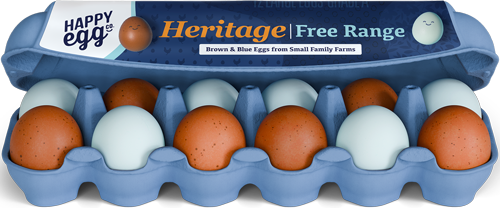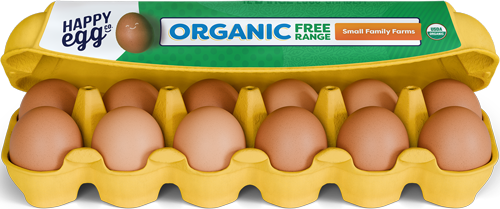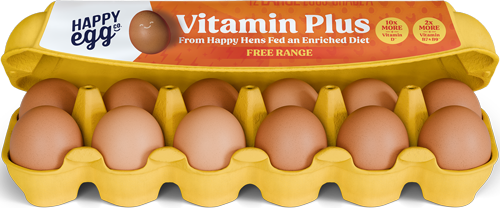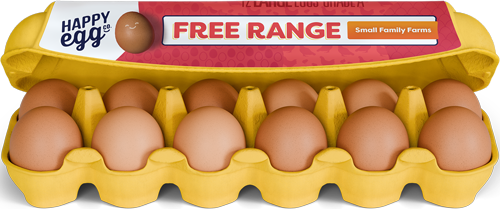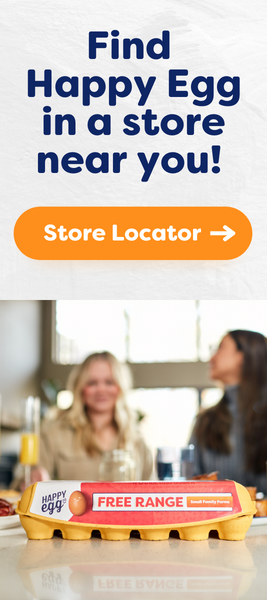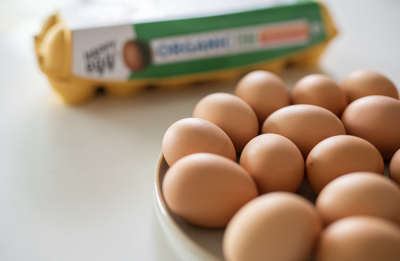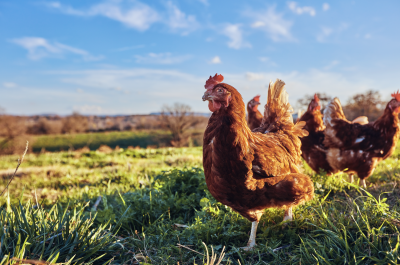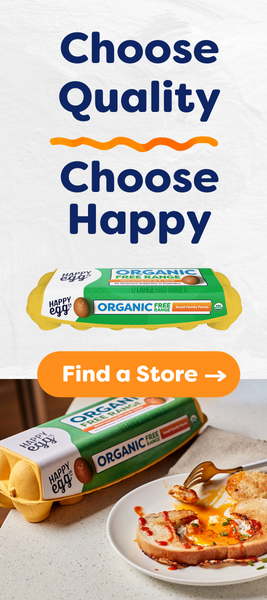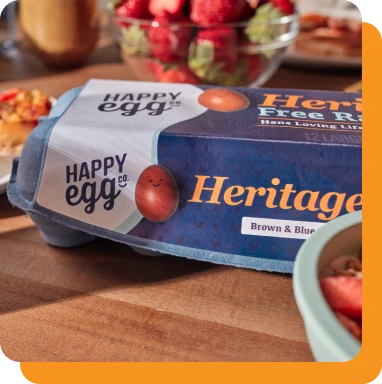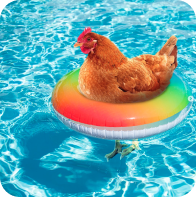There are plenty of DIY hacks out there that suggest how to tell if an egg is bad. Of course, the expiration or “Sell By” date printed on the side of your carton of Happy Eggs is indicative of your eggs’ prime time but, like most other foods you have in your fridge or pantry, eggs can often be safely consumed past this printed date...that is, if you know what to look for.
For starters, it’s important to note that different states require different verbiage for date labeling, depending on that state’s regulations. While a carton of Happy Eggs you purchase in your home state might say “Best By,” a carton from a neighboring state might say “Use By,” and the next might say “Expiration Date.”
Regardless of which of these is stamped on your carton, the important thing to remember is that eggs can be safely consumed for 3 to 5 weeks from the day they are placed in your refrigerator at home, per the USDA. If you crunch some numbers, you’ll likely find that the expiration date printed on your carton will fall before that 3-to-5-week span— but the eggs are probably still safe to eat.
Don’t get it twisted; we’re not saying the carton of eggs that’s been shoved in the back of your fridge for two months is full of fresh eggs. What we are saying is there is a quick and easy way to test your eggs if you’re unsure.
*The Egg Float Test has entered the chat.*
The Egg Float Test is easily one of our favorite and most trusted methods of testing the freshness of your eggs. After all, who doesn’t love a little science experiment? All you need is your eggs, a bowl or cup, and some water.
How To Tell If Eggs Are still Good:
1. Fill a bowl or cup with water—enough to cover your eggs and then some.
2. Gently drop your egg(s) into the water.
3. Observe! If the egg floats, it's no longer fresh. If it sinks, it's still perfectly safe to eat. If it bobs somewhere in between the two, it's probably still okay, but would be safer to go ahead and toss.
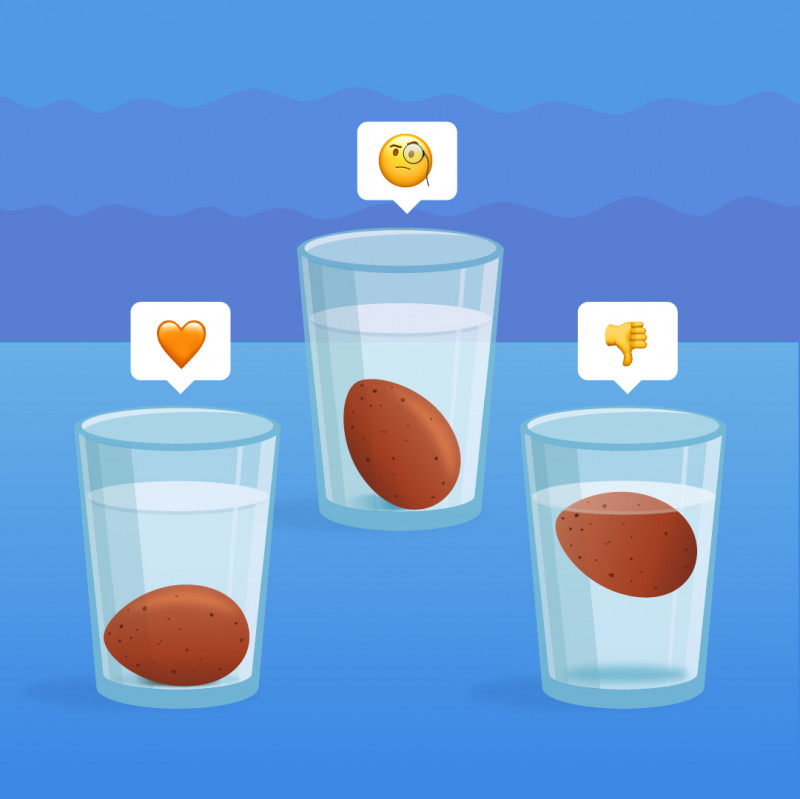
So, how does it work? Unfortunately it’s not Happy Egg magic— this trick will work with any carton of eggs you buy. As eggs age, air builds up inside the shell creating a balloon-like air cell. The larger this air cell gets over time, the more moisture leaves the egg through the shell’s pores, and the more buoyant the egg becomes. The smaller the air cell, the fresher the egg.
Moral of the story? If your egg floats in a bowl of water, it’s time for them to go. Otherwise, you can keep on cracking on.


